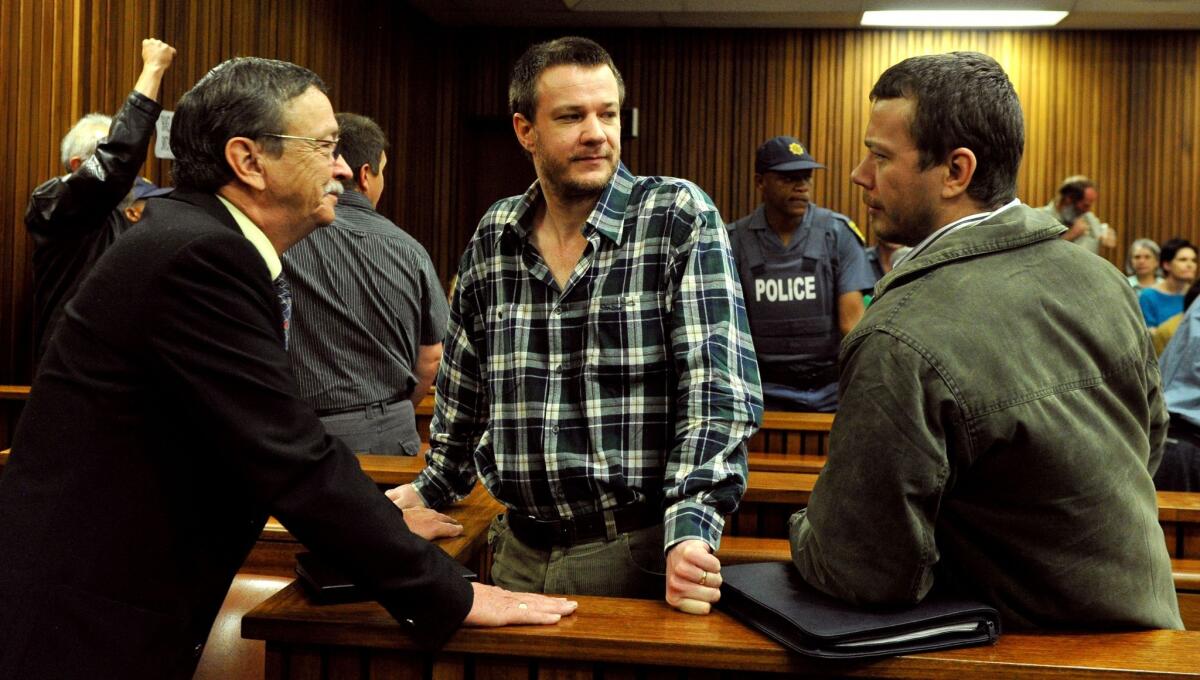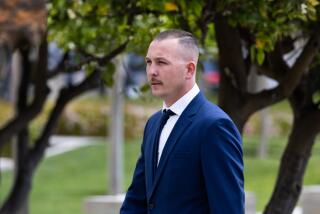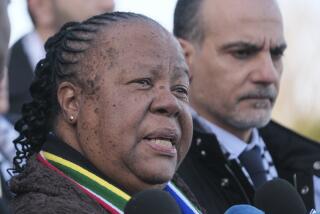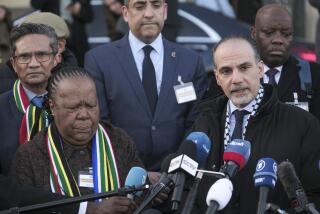Court sentences white supremacists who plotted to kill Mandela

JOHANNESBURG, South Africa -- Members of a white supremacist Afrikaner “army” who hatched a poorly planned plot to assassinate former South African President Nelson Mandela were sentenced Tuesday to as many as 35 years in prison.
The 21 defendants were charged with offenses including treason, terrorism, setting off explosions and culpable murder from the late 1990s to 2002. Their sentences ranged from five to 35 years, the latter prison terms give to group leader Mike Du Toit and four others.
The case in Pretoria High Court, South Africa’s first treason trial since the end of apartheid, lasted more than 10 years and cost $3.6 million.
The Boeremag, or Boer force, set off eight bombs in 2002 in the black township of Soweto, killing one woman. The victim, Claudia Mokone, lived in a shack near where the group set off a bomb on a railway line and was struck by flying metal. The group also bombed a mosque and other targets.
The group also planted a explosive device by the road in a bid to kill Mandela when his car passed on the way to visit a school in Limpopo. The plan fell apart when the president instead flew to the school by helicopter.
The homemade bomb aimed at Mandela was made with a bucket containing ammonium nitrate, diesel, a detonator and timing device. The group also planned to blow up parliament, destroy a dam and shoot down aircraft.
Some analysts say the extremist militia never had the numbers or organizational strength to pose a major threat or pull off a coup. But Judge Eben Jordaan rejected that view, saying they came close to killing Mandela and that South Africa would have been plunged into a bloodbath had South Africa’s first black leader died violently.
Mandela, who was critically ill this year, has been recuperating at home in recent months, with little known about his present condition.
Though racial tensions persist in South Africa, white supremacists are generally seen as part of a fading lunatic fringe with very narrow support.
The court heard that the men -- led by Du Toit, a former university lecturer, -- planned to launch a reign of terror that would send the black population and the African National Congress government fleeing, enabling a return to white minority rule. They also planned to expel the Indian population.
The prosecution called almost 200 witnesses, including police spies planted in the Boeremag who told the court that the group stockpiled 1.5 tons of explosives for five car bombs that were to be detonated in Pretoria and Johannesburg in December 2002. The men were arrested before the plan could be carried out. They also stockpiled gasoline and beer bottles for petrol bombs.
At one point, some of the accused demanded to be held and tried as “prisoners of war,” a call rejected by the judge.
The members of the Boeremag included Du Toit’s brother, Andre Du Toit; Dr. Lets Pretorius and his sons Wilhelm, Johan and Kobus Pretorius; Tom Vorster, Herman van Rooyen and Rudi Gouws.
Vorster and four other members of the group’s bomb squad, Van Rooyen, Johan and Wilhelm Pretorius, and Rudi Gouws, had planned to blow up the South African parliament and other buildings. They were each given 25 years in prison.
The third Pretorius brother, Kobus, was given a reduced sentence of 20 years after telling the court he repented of his crimes and apologizing to the nation.
Van Rooyen and Gouws escaped jail in 2006 and were recaptured in 2007.
Some members of the group, who received lower sentences because they played smaller roles, walked free Tuesday because they had already been in jail for 11 years during the trial.
The judge said South Africa was a democracy with a constitution guaranteeing equality and that those who remained unhappy with the system were not entitled to resort to violence.
ALSO:
Israel beset by flurry of reported cyber attacks
White House OKd spying on allies, U.S. intelligence officials say
China leaders were nearby during apparent Tiananmen Square attack
Twitter: @latimesdixon
More to Read
Start your day right
Sign up for Essential California for news, features and recommendations from the L.A. Times and beyond in your inbox six days a week.
You may occasionally receive promotional content from the Los Angeles Times.






